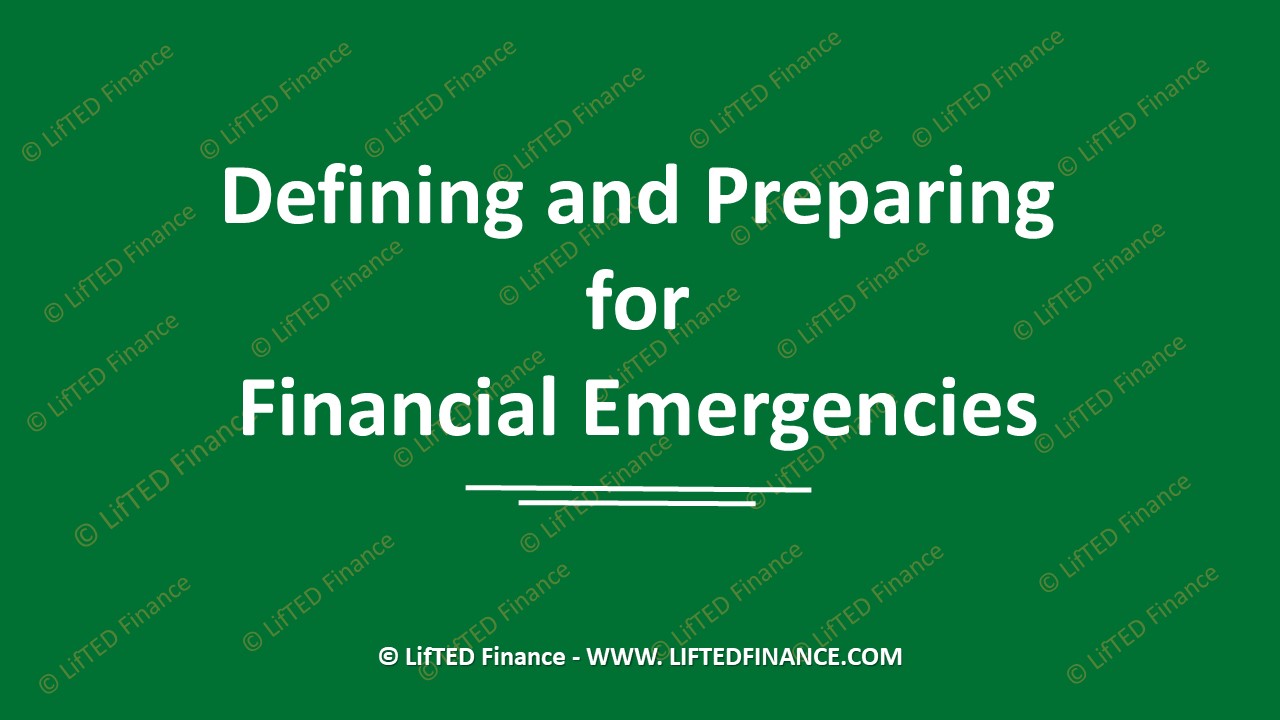An emergency is an urgent, unexpected situation that poses an immediate risk to health, life, property, or the environment. These situations can cause significant financial strain and often require swift action to prevent worsening. Financial emergencies, in particular, impact your finances and disrupt your financial stability if you are not adequately prepared.
Common financial emergencies include:
• Job Loss: Losing your primary source of income can create a significant financial burden, especially if it takes time to find new employment.
• Medical Emergencies: Unplanned medical expenses, such as hospital stays, surgeries, or treatments not covered by insurance, can be costly.
• Major Home Repairs: Urgent home repairs, such as fixing a leaky roof, broken heating or cooling systems, plumbing issues, or electrical problems, can be expensive.
• Car Repairs: Major car repairs or maintenance costs, like replacing tyres, fixing a broken engine, or dealing with accident-related damages, can be a financial strain.
• Unexpected Travel: Unplanned travel expenses, such as last-minute flights for emergencies or urgent situations, can incur significant costs.
• Natural Disasters: Expenses related to recovering from natural disasters, including temporary housing and property repairs.
• Legal Issues: Costs associated with unexpected legal matters, such as attorney fees, court costs, or settlements.
Being well-prepared for life's unexpected challenges involves multiple layers of protection, each designed to address different aspects of potential emergencies and uncertainties. Three essential protective layers everyone should implement are:
• Emergency Fund:
An emergency fund is a savings account dedicated to covering unexpected expenses. Its purpose is to cover unplanned financial emergencies like job loss, medical bills, or major repairs. Financial advisors typically recommend having three to six months’ worth of living expenses saved in an easily accessible account. This provides a financial cushion to help navigate through emergencies without resorting to high-interest debt or severely impacting one's finances.
• Insurance:
Insurance policies provide financial protection against specific risks. Health Insurance covers medical expenses; homeowner’s/renter’s insurance protects against damage or loss of property and belongings due to events like fire, theft, or natural disasters; auto Insurance covers vehicle-related damages and liability in case of accidents; life Insurance provides financial support to your dependents in the event of your death; critical illness or disability Insurance replaces a portion of your income if you become unable to work due to illness or injury; long-term care insurance helps cover the costs of long-term care services, such as in-home care or nursing home care, which are not covered by regular health insurance.
• Legal and Estate Planning:
Proper legal documentation ensures your wishes are respected and provides clarity for your loved ones. A Will specifies how your assets will be distributed after your death; a Trust manages your assets for specific purposes and can provide tax benefits; a Power of Attorney authorizes someone to make decisions on your behalf if you are unable to do so; and Healthcare Directive outlines your wishes for medical treatment if you become incapacitated.
By layering these protective measures, you create a robust safety net that can help you navigate and withstand various challenges life may present. Each layer addresses different potential risks, collectively enhancing your overall preparedness and financial resilience.


About Nike
Oyenike Adetoye (aka Nike) is an impactful speaker, author and personal finance expert. A Chartered Management Accountant by profession. Nike is the founder and CEO of LifTED Finance, a private financial firm that educates, coaches and supports people on their journey through financial fitness and wealth management.
